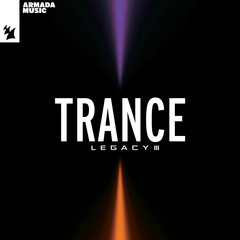Matthew West
Matthew West其实他是一名歌手也同时是一名作曲家,专辑中的所有歌曲都是他一人所做,做为时下的年轻创作人这一点应经太不容易啦!"God whispers to us in our pleasures, speaks in our conscience, but shouts in our pains; it is His megaphone to rouse a deaf world."—C.S. LewisLife was good for Matthew West. Having catapulted onto the Christian music scene in 2003 with his debut single, "More"—the most played Christian AC song of 2004—the multi-Dove Award nominee and sought-after songwriter had enjoyed two critically-acclaimed studio recordings, Happy (2003) and History (2005); been a mainstay at Christian radio with memorable hits like "Only Grace," "History" and "Next Thing You Know"; and toured with such artists as tobyMac and BarlowGirl. But in April of 2007, with a new label home at Sparrow Records, concert dates on the books and plans to hit the studio with a fresh batch of songs for an album he’d already titled Something To Say, Matthew lost his voice. After one look at his vocal chords, doctors at the Vanderbilt Voice Center immediately put all his plans on hold. They discovered a vascular polyp and hemorrhaged blood vessels on Matthew’s vocal chord, making it impossible for him to sing. His doctors were convinced only two courses of treatment would work: complete silence and surgery. "Everything came to a screeching halt," Matthew says of the diagnosis and the news of surgery. "All of a sudden my calendar was completely cleared. My studio plans were postponed. My life shut down." Even worse, he says, was the frustration of not being able to communicate with his wife, Emily, and 1-year-old daughter, Lulu. "I was armed with a dry erase board, unable to do the little things we take for granted everyday, like talking with my wife, or singing to my little girl before bed." This season of silence wasn’t just a wake up call for the Wests, it was a dark, uncertain place. "I saw a side of Matthew that I had not yet really seen," says Emily. "A more fearful side, vulnerable, less confident. But also, I saw in Matthew a determination to allow God to do a work in his life through this trial. I saw him commit time each day in prayer, and really seek God for some purpose to this season." Matthew recommitted himself to journaling his thoughts and prayers during his season of silence. "Solitude is an uncomfortable place, and silence is so unnatural for most of us," he relates. "I found myself surrounded by questions like, ‘What if I can’t sing anymore? What if my voice doesn’t sound the same? What if I can’t provide for my family?’ It was foundation shattering. But over and over again, I felt this recurring message on my heart saying, ‘Cease striving…don’t even ask for answers, just be with Me. Be still. I am using your voice, even when you can’t hear it.’" Most of the songs on Something to Say were written before Matthew’s surgery, but in many ways, it took this trial to fully understand their meaning. "Prior to this experience, I only had a glimpse of what these songs had to say, but having literally nothing to say for two months, it was as if I understood what these songs were trying to communicate all along. It’s like writing messages or taking notes and then taking the test to see if you really ‘get’ what you’ve written. Sometimes you’re given the message before you know what it means. Then the test comes, and you can see how God intended everything to be." Driven by a distinctive lyrical clarity, Something To Say is a soundtrack for life—a powerful reminder that God is speaking every day out of the broken places and pieces of our lives. Produced by Brown Bannister, Ed Cash and Chris Stevens, the album delivers the infectious guitar-driven pop that fans have come to expect from an artist and writer whose songs have also graced projects by Natalie Grant, Mandisa, Mark Schultz and Billy Ray Cyrus, as well as a cut on Rascal Flatts’ multi-platinum Feels Like Today. From the high-energy title track, to the powerful "The Moment of Truth," to the closing ballad "Stop The World," Something To Say unfolds in fresh and thought-provoking ways to reveal its message of hope and healing. "I wanted to write songs that weren’t afraid to talk about real life," Matthew says. "Real struggles. Real issues. Real problems. Because every song about real life is an opportunity to sing about the real Hope that can be found in Jesus." "Life Inside You" is an unforgettable example. Based on a true story, Matthew captures the struggles—and Hope—of a teenage couple facing pregnancy and addiction. "This young couple, with all the potential in the world, on the verge of throwing in the towel… somehow in the center of what seemed so hopeless, that tiny heart was beating… She kept the baby. It’s a boy. They got sober and got married. Redemption is real." The core message of the entire album, he says, is "no matter how many mistakes we’ve made or trials we’ve faced, it’s the brokenness of our lives that God uses to give us something to say to the world. I was sitting in church one Sunday after my surgery when my pastor read a quote from C.S. Lewis: ‘God whispers to us in our pleasures, speaks in our conscience, but shouts in our pains; it is his megaphone to rouse a deaf world.’ It’s easier to cover up the weakest moments in life, hoping no one sees, but that’s not God’s plan for us. ‘Offer it up to Me, let Me show you what new life is like, what I can do with your mistakes.’ He will amplify His voice through you in a huge way."Ultimately, Matthew hopes to communicate the message that God is indeed at work in all our lives, in every circumstance, in every moment of our existence. And even in the silence—as Matthew well knows—there is still great Hope to be shared, a story to be told, and something to say.


 The Heart of Christmas - Matthew West
The Heart of Christmas - Matthew West


























![[STATION] aespa《Dreams Come True》MV Teaser - aespa (에스파)](https://img2.kuwo.cn/wmvpic/324/79/54/2120387380.jpg?imageView2/1/w/195/h/130/format/jpg/q/60)





